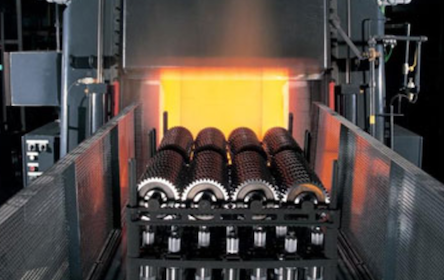Bodycote, the Macclesfield-based heat treatment and thermal processing giant, said its first-half revenue rose 14.6% to £358.5 million and profit before taxation rose to £41.6 million from £40.5 million.
In its outlook, Bodycote said: “Civil Aerospace revenue grew strongly in the half and we should continue to see good growth in demand as the original equipment manufacturers (OEMs) ramp up their new build programmes and passenger numbers continue to grow.
“General Industrial volumes and revenue were also robust and, given the breadth of end markets and geographies underpinning this business, we should see continued demand momentum in the second half.
“Automotive volumes declined, as supply chain issues continued to hamper OEM production, but there is significant pent-up demand for new vehicles, and volumes are expected to grow in the second half.
“The significant daily demand volatility that we saw in April and May is now stabilising and we have managed to contain the impact on operating efficiency to modest proportions.
“The price increases implemented across the business, along with the decisive management actions we have taken over the past two years, including the £30m annualised cost savings achieved from the 2020 restructuring programme, position us well to both adapt to changes in market conditions.
“Our strong balance sheet also allows us to take advantage of opportunities as they arise.
“While there are obvious geopolitical uncertainties, as matters stand today, we see the prospect of volume growth in each of our key market sectors and geographies and we anticipate making progress in the second half.”
Bodycote CEO Stephen Harris, said: “The group performed well in the first half. Revenues were up 14.6%, benefiting from price increases and energy surcharges which we have successfully passed on to our customers in response to the cost inflation we have experienced.
“We have produced strong revenue growth in the majority of our markets with Civil Aerospace revenues up 30%, General Industrial revenues up 19% and Emerging Markets revenues up 22%.
“Automotive revenues declined 4%, although the significant daily demand volatility that we saw in April and May is now stabilising and we have managed to contain the impact on operating efficiency to modest proportions.
“The price increases implemented across the business, along with the decisive management actions we have taken over the past two years, including the £30m annualised cost savings achieved from the 2020 restructuring programme, position us well to adapt to changes in market conditions.
“Our strong balance sheet also allows us to take advantage of opportunities as they arise.
“While there are obvious geopolitical uncertainties, as matters stand today, we see the prospect of volume growth in each of our key market sectors and geographies and we anticipate making progress in the second half.”
